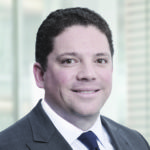Special to the Financial Independence Hub
In my last blog, I took on those Questrade TV commercials where the client schedules a meeting with their financial advisor to tell them they’re fired. While people don’t normally schedule a meeting with an advisor to do such a thing, I think the real story is that the client does not experience value from the relationship. And if that’s the case, not paying the fee and moving on makes perfect sense.
But that doesn’t mean doing it yourself is the best idea. Investment management and financial planning is more complicated and intricate than people realize. Having access to tools doesn’t make you an expert; I can buy everything I need to renovate my house or rewire my kitchen, but that doesn’t mean I should. Better to leave this to Mike Holmes. Here are some key areas when an excellent financial advisor can add great value.
Fire Drills
We all want to plan for a happy future with a comfortable retirement, maybe a new car, or an exotic holiday. People associate these things with creating a financial plan, largely due to multi-million-dollar ad campaigns by mutual fund companies. But life is not a Cialis commercial and bad things happen.
With Christmas coming get ready for media stories about the family whose house burnt down with all their possessions, including presents under the tree, going up in blazes. Then we’re told they didn’t have insurance and donations are being taken for them at the local bank branch.
To prevent misfortune from turning into tragedy, a good Financial Advisor will first have their client pay attention to planning for things going wrong. Indeed, assessing key risks to one’s financial health (i.e., premature death, disability, loss of employment, liability, critical illness) should be the primary component of a financial plan.
We also must look at documents and processes such as a will and Power of Attorney that describe what happens when we can’t speak for ourselves. Unfortunately, these are things most people do not do on their own. And if they do, they usually don’t do them with skill and adequate preparation.
A great, and valuable, Financial Advisor does more than just inquire about insurance and other documents. They run a ‘fire drill’ on the family.
Let’s say someone doesn’t come home one day because of illness or sudden death. What happens next? Who gets the call? What documents are needed and where exactly are they? Along with all this are other important questions.
- What income is going to come into the household to replace those lost wages?
- What paperwork needs to be filed?
- Who’s going to do it?
Your employer is legally bound to run a fire drill at least once a year. Shouldn’t your financial plan do the same?
Budgets don’t balance themselves
Despite Prime Minister Justin Trudeau’s statement, I can assure you that budgets do not do this. We all have multiple and often competing demands on our time, money and energy. And when we combine the wishes, desires and needs of other family members, things may and will get derailed.
A good Financial Advisor will help us identify what’s really important to accomplish and map out a way to get there. In our practice, we coach our clients to think in terms of three important things:
- Destinations
- Waypoints
- Milestones
A Destination is a broad goal you are emotionally invested in achieving. It could be enjoying a comfortable retirement, getting your children the best possible education, or financially assisting a parent or grandparent. It is usually some distance away but is the direction your plan is heading to.
A Waypoint is something you want to see or do on your way to that Destination, but it also requires time, money and energy for the planning. Think of a Waypoint as a stop on the journey. Keep in mind that a Waypoint may or may not lead in the same direction as your Destination and might involve a detour that we need to take. For example, a Waypoint may be a big trip or an expensive purchase. It could be an African safari or a new family cottage. Getting such things may make it tougher to reach your Destination, but Waypoints do add richness and purpose to life’s journey.
Milestones, on the other hand, are much different than Waypoints. They are ways to mark your progress and help keep you on track as you move from one Waypoint to another. Key Milestones can be paying off the mortgage by a certain age or having a certain balance in your retirement accounts by age 60. To be useful, the milestone must be specific, measurable and well placed. Think of them like speed-limit signs; you don’t find them behind a tree, in small script, or in colours that are hard to read at night. No. They are big, reflective, easy to read, and placed where you can see them. Your milestones should be like that, too.
By taking a client through this kind of dialogue, the Financial Advisor helps build a plan that is both achievable and emotionally important for the client. This way, client’s dreams move from “someday” to “what day?”
Silence back-seat drivers
Back-seat drivers are the outside influences that may be compelling and well meaning, but are more likely to cause confusion. You’ve probably had the experience of driving and getting unsolicited advice from other people in the car – you’re in the wrong lane, take this route, whatever.
Some of it may be helpful, but most of it is distracting and even dangerous. If you’re not careful about how you filter and process this information, an accident might be the result. So, there is a significant difference between information and wisdom. Facts matter – but it’s what you do with those facts that really matters.
Every day we are confronted with outside influences that can disrupt, distract or destroy our regular plans. These influences can come from friends and family. They can come from the media, blogging, or tweeting. They can come from email, YouTube, Facebook, and all the other ways that information about saving, spending and investing reaches us. It seems that everyone has an opinion and today’s technology allows all of it to be broadcast. The trick is to figure out what to pay attention to and what to ignore.
The hardest voices to filter out are those closest to you. Your family, friends and co-workers are people you trust and care about. And they care about you, too. You know they are well intentioned and think that they are in the best position to provide counsel. However, if you filter them too effectively, they can become frustrated that you are not listening to them. What to do? It’s best to take critical advice only from people who are trained and experienced to give it. That means people who have no conflict and no bias other than what is best for you. On this score, a well qualified and proven financial advisor is usually a better source than listening to friends and family.
Think of it this way. You wouldn’t trust your new car to a backyard mechanic, so why take financial advice from amateurs?
In summary, the ideal client-Advisor relationship is about a lot more than just picking investments. It’s a true partnership based on clarity and insight. And it’s also intensely human.
In my humble view, a robo-advisor is the exercise bike of the investment world. If you can get the results on your own, terrific. But most of us can’t and won’t. We need a great coach to train, educate and motivate us. That’s what value is all about.
 Darren Coleman is an advisor with Raymond James in Toronto. His professional accreditations include Canadian Investment Manager, Financial Management Advisor, and Fellow of the Canadian Securities Institute with a Level II Life Insurance License. Darren was one of the first Canadian professionals to attain the designations of Professional Financial Planner, Certified Financial Planner, and Certified Hedge Fund Specialist. He is the author of RECALCULATING – Find Financial Success and Never Feel Lost Again.
Darren Coleman is an advisor with Raymond James in Toronto. His professional accreditations include Canadian Investment Manager, Financial Management Advisor, and Fellow of the Canadian Securities Institute with a Level II Life Insurance License. Darren was one of the first Canadian professionals to attain the designations of Professional Financial Planner, Certified Financial Planner, and Certified Hedge Fund Specialist. He is the author of RECALCULATING – Find Financial Success and Never Feel Lost Again.
]



